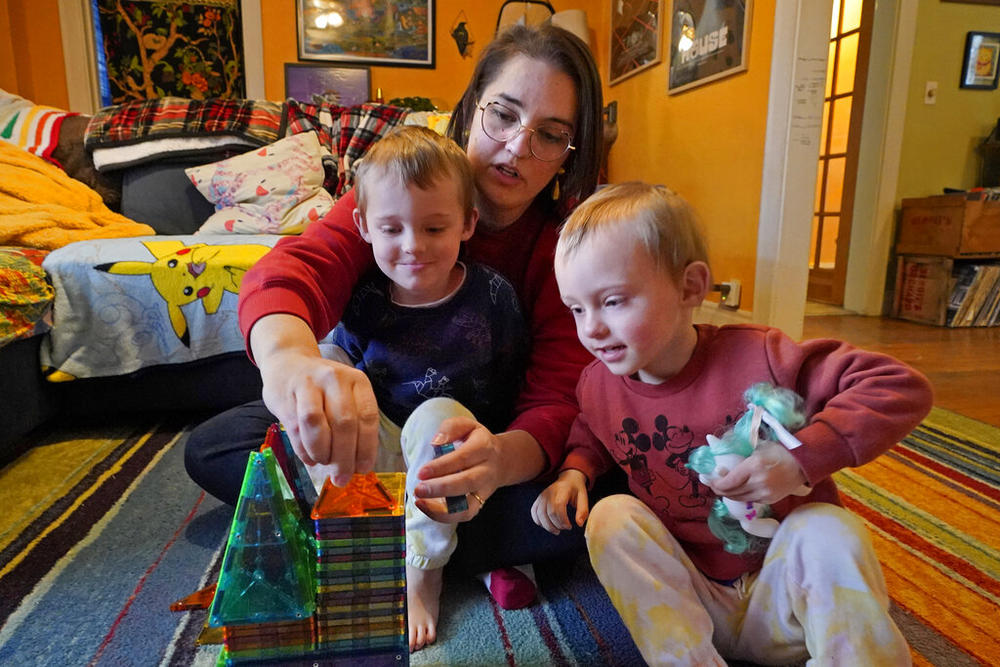
Caption
Heather Cimellaro, builds a toy house with her twins, Milo, left, and Charlie, at their home, Wednesday, Jan. 5, 2022, in Auburn, Maine. Heather Cimellaro is one many parents concerned about the omicron surge and the dilemma it's posing for families of children too young to be vaccinated.
Credit: (AP Photo/Robert F. Bukaty)

